- Home
- Richard Matheson
Backteria and Other Improbable Tales Page 11
Backteria and Other Improbable Tales Read online
Page 11
They had put him in the one place he was terrified of. The one place he had made the fatal mistake of speaking about to them. They couldn’t have selected a better torture. Not if they’d thought about it for a hundred years.
God, did they loathe him that much? To do this to him.
He started shaking helplessly, then caught himself. He wouldn’t let them do it. Take his life and his business all at once? No, goddamn them, no!
He searched hurriedly for the lighter. That was their mistake, he thought. Stupid bastards. They’d probably thought it was a final, fitting irony: A gold-engraved thank you for making the corporation what it was. On the lighter were the words: To Charlie/Where there’s a Will…
“Right,” he muttered. He’d beat the lousy sons of bitches. They weren’t going to murder him and steal the business he owned and built. There was a will.
His.
He closed his fingers around the lighter and, holding it with a white- knuckled fist, lifted it above the heaving of his chest. The wheel ground against the flint as he spun it back with his thumb. The flame caught and he quieted his breathing as he surveyed what space he had in the coffin.
Only inches on all four sides.
How much air could there be in so small a space, he wondered? He clicked off the lighter. Don’t burn it up, he told himself. Work in the dark.
Immediately, his hands shot up and he tried to push the lid up. He pressed as hard as he could, his forearms straining. The lid remained fixed. He closed both hands into tightly balled fists and pounded them against the lid until he was coated with perspiration, his hair moist.
He reached down to his left-trouser pocket and pulled out a chain with two keys attached. They had placed those with him, too. Stupid bastards. Did they really think he’d be so terrified he couldn’t think? Another amusing joke on their part. A way to lock up his life completely. He wouldn’t need the keys to his car and to the office again so why not put them in the casket with him?
Wrong, he thought. He would use them again.
Bringing the keys above his face, he began to pick at the lining with the sharp edge of one key. He tore through the threads and began to rip apart the lining. He pulled at it with the fingers until it popped free from its fastenings. Working quickly, he pulled at the downy stuffing, tugging it free and placing it at his sides. He tried not to breathe too hard. The air had to be preserved.
He flicked on the lighter and looking at the cleared area, above, knocked against it with the knuckles of his free hand. He sighed with relief. It was oak not metal. Another mistake on their part. He smiled with contempt. It was easy to see why he had always been so far ahead of them.
“Stupid bastards,” he muttered, as he stared at the thick wood. Gripping the keys together firmly, he began to dig their serrated edges against the oak. The flame of the lighter shook as he watched small pieces of the lid being chewed off by the gouging of the keys. Fragment after fragment fell. The lighter kept going out and he had to spin the flint over and over, repeating each move, until his hands felt numb. Fearing that he would use up the air, he turned the light off again, and continued to chisel at the wood, splinters of it falling on his neck and chin.
His arm began to ache.
He was losing strength. Wood no longer coming off as steadily. He laid the keys on his chest and flicked on the lighter again. He could see only a tattered path of wood where he had dug but it was only inches long. It’s not enough, he thought. It’s not enough.
He slumped and took a deep breath, stopping halfway through. The air was thinning. He reached up and pounded against the lid.
“Open this thing, goddammit,” he shouted, the veins in his neck rising beneath the skin. “Open this thing and let me out!”
I’ll die if I don’t do something more, he thought.
They’ll win.
His face began to tighten. He had never given up before. Never. And they weren’t going to win. There was no way to stop him once he made up his mind.
He’d show those bastards what willpower was.
Quickly, he took the lighter in his right hand and turned the wheel several times. The flame rose like a streamer, fluttering back and forth before his eyes. Steadying his left arm with his right, he held the flame to the casket wood and began to scorch the ripped grain.
He breathed in short, shallow breaths, smelling the butane and wool odor as it filled the casket. The lid started to speckle with tiny sparks as he ran the flame along the gouge. He held it to one spot for several moments then slid it to another spot. The wood made faint crackling sounds.
Suddenly, a flame formed on the surface of the wood. He coughed as the burning oak began to produce grey pulpy smoke. The air in the casket continued to thin and he felt his lungs working harder. What air was available tasted like gummy smoke, as if he were lying in a horizontal smokestack. He felt as though he might faint and his body began to lose feeling.
Desperately, he struggled to remove his shirt, ripping several of the buttons off. He tore away part of the shirt and wrapped it around his right hand and wrist. A section of the lid was beginning to char and had become brittle. He slammed his swathed fist and forearm against the smoking wood and it crumbled down on him, glowing embers falling on his face and neck. His arms scrambled frantically to slap them out. Several burned his chest and palms and he cried out in pain.
Now a portion of the lid had become a glowing skeleton of wood, the heating radiating downward at his face. He squirmed away from it, turning his head to avoid the falling pieces of wood. The casket was filled with smoke and he could breathe only the choking, burning smell of it. He coughed his throat hot and raw. Fine-powder ash filled his mouth and nose and he pounded at the lid with his wrapped fist. Come on, he thought. Come on.
“Come on!” he screamed.
The section of lid gave suddenly and fell around him. He slapped at his face, neck and chest but the hot particles sizzled on his skin and he had to bear the pain as he tried to smother them.
The embers began to darken, one by one and now he smelled something new and strange. He searched for the lighter at his side, found it, and flicked it on.
He shuddered at what he saw.
Moist, root laden soil packed firmly overhead.
Reaching up, he ran his fingers across it. In the flickering light, he saw burrowing insects and the whiteness of earthworms, dangling inches from his face. He drew down as far as he could, pulling his face from their wriggling movements.
Unexpectedly, one of the larva pulled free and dropped. It fell to his face and its jelly-like casing stuck to his upper lip. His mind erupted with revulsion and he thrust both hands upward, digging at the soil. He shook his head wildly as the larva were thrown off. He continued to dig, the dirt falling in on him. It poured into his nose and he could barely breathe. It stuck to his lips and slipped into his mouth. He closed his eyes tightly but he could feel it clumping on the lids. He held his breath as he pistoned his hands upward and forward like a maniacal digging machine. He eased his body up, a little at a time, letting the dirt collect under him. His lungs were laboring, hungry for air. He didn’t dare open his eyes. His fingers became raw from digging, nails bent backward on several fingers, breaking off. He couldn’t even feel the pain or the running blood but knew the dirt was being stained by its flow. The pain in his arms and lungs grew worse with each passing second until shearing agony filled his body. He continued to press himself upward, pulling his feet and knees closer to his chest. He began to wrestle himself into a kind of spasmed crouch, hands above his head, upper arms gathered around his face. He clawed fiercely at the dirt which gave way with each shoveling gouge of his fingers. Keep going, he told himself. Keep going. He refused to lose control. Refused to stop and die in the earth. He bit down hard, his teeth nearly breaking from the tension of his jaws. Keep going, he thought. Keep going! He pushed up harder and harder, dirt cascading over his body, gathering in his hair and on his shoulders. Filth surrounded him. His lung
s felt ready to burst. It seemed like minutes since he’d taken a breath. He wanted to scream from his need for air but couldn’t. His fingernails began to sting and throb, exposed cuticles and nerves rubbing against the granules of dirt. His mouth opened in pain and was filled with dirt, covering his tongue and gathering in his throat. His gag reflex jumped and he began retching, vomit and dirt mixing as it exploded from his mouth. His head began to empty of life as he felt himself breathing in more dirt, dying of asphyxiation. The clogging dirt began to fill his air passages, the beat of his heart doubled. I’m losing! he thought in anguish.
Suddenly, one finger thrust up through the crust of earth. Unthinkingly, he moved his hand like a trowel and drove it through to the surface. Now, his arms went crazy, pulling and punching at the dirt until an opening expanded. He kept thrashing at the opening, his entire system glutted with dirt. His chest felt as if it would tear down the middle.
Then his arms were poking themselves out of the grave and within several seconds he had managed to pull his upper body from the ground. He kept pulling, hooking his shredded fingers into the earth and sliding his legs from the hole. They yanked out and he lay on the ground completely, trying to fill his lungs with gulps of air. But no air could get through the dirt which had collected in his windpipe and mouth. He writhed on the ground, turning on his back and side until he’d finally raised himself to a forward kneel and began hacking phlegm-covered mud from his air passages. Black saliva ran down his chin as he continued to throw up violently, dirt falling from his mouth to the ground. When most of it was out he began to gasp, as oxygen rushed into his body, cool air filling his body with life.
I’ve won, he thought. I’ve beaten the bastards, beaten them! He began to laugh in victorious rage until his eyes pried open and he looked around, rubbing at his blood-covered lids. He heard the sound of traffic and blinding lights glared at him. They crisscrossed on his face, rushing at him from left and right. He winced, struck dumb by their glare, then realized where he was.
The cemetery by the highway.
Cars and trucks roared back and forth, tires humming. He breathed a sigh at being near life again; near movement and people. A grunting smile raised his lips.
Looking to his right, he saw a gas-station sign high on a metal pole several hundred yards up the highway.
Struggling to his feet, he ran.
As he did, he made a plan. He would go to the station, wash up in the rest room, then borrow a dime and call for a limo from the company to come and get him. No. Better a cab. That way he could fool those sons of bitches. Catch them by surprise. They undoubtedly assume he was long gone by now. Well, he had beat them. He knew it as he picked up the pace of his run. Nobody could stop you when you really wanted something, he told himself, glancing back in the direction of the grave he had just escaped.
He ran into the station from the back and made his way to the bathroom. He didn’t want anyone to see his dirtied, bloodied state.
There was a pay phone in the bathroom and he locked the door before plowing into his pocket for change. He found two pennies and a quarter and deposited the silver coin, they’d even provided him with money, he thought; the stupid bastards.
He dialed his wife.
She answered and screamed when he told her what had happened. She screamed and screamed. What a hideous joke she said. Whoever was doing this was making a hideous joke. She hung up before he could stop her. He dropped the phone and turned to face the bathroom mirror.
He couldn’t even scream. He could only stare in silence.
Staring back at him was a face that was missing sections of flesh. Its skin was grey, and withered yellow bone showed through.
The he remembered what else his wife had said and began to weep. His shock began to turn to hopeless fatalism.
It had been over seven months, she’d said.
Seven months.
He looked at himself in the mirror again, and realized there was nowhere he could go.
And, somehow all he could think about was the engraving on his lighter.
Getting Together
The telephone rang. She answered it.
“Hello?” she said.
“Gladys?”
“Milton?”
“Yes,” her husband answered. “Gladys, darling, I’m afraid I won’t be able to make it home for dinner tonight.”
“Oh, my dear. You’re working late at the bank again?”
“No.” She thought she heard him swallow. “I’ve been arrested, Gladys.”
“Arrested!” Her brown eyes widened.
“Oh, it’s just a silly mistake, darling,” he soothed, “nothing at all to worry about.”
“But, why did they arrest you, sweetheart?”
“Well, it seems that I resemble some thug who killed a rich old lady for her money last night, darling.”
“But that’s absurd!” she cried, “lover.”
“I know it, dearest,” he said, “but, well you see, I have no proof to the contrary, darling. While this terrible deed was being committed, I was in the neighborhood, walking to the subway.”
“But that’s absurd!” she cried.
“I know it, darling,” he said apologetically, “but well you see, there are witnesses who claim that I’m the man.
“But that’s…” Her hands began to tremble. “Oh, Milton sweet,” she said, “what are we to do?”
“Well,” he said, “if you could get a lawyer for me, dear.”
“Yes,” she said, “I’ll get one right away. Now don’t you fret, lover. Everything will be all right.”
“Of course,” he said. “Yes, of course it will be, Gladys darling.”
Unfortunately, it wasn’t.
The situation degenerated into a flagrant miscarriage of justice, a gross outrage of law, and a dirty shame. On purely circumstantial evidence, Milton Freef was found guilty of pushing that china closet on top of that old lady and making off with her savings.
“…at which time you will be executed in the electric chair,” the judge intoned his final intonation.
At which, Gladys Freef slipped off her chair into a dead heap, taking down with her the lawyer’s papers, bifocals, and homburg.
“Oh, my dear,” she murmured to her glassy-eyed husband in the prison visiting room some days later, “I can’t go on without you. I’ll simply die.”
“Courage,” he squeaked. “Perhaps the lawyer’s appeal will turn the tide.”
“Oh, Milton, lover,” she said passionately, “It must. It simply must.”
It didn’t. And the man who really pushed that china closet on top of that old lady blew all the stolen money on a huge drinking party at a lush hotel, during which he bet he could hop along a terrace railing on one foot and lost. As the terrace was on the fortieth floor, the loss was irreparable.
A distraught Gladys Freef purchased a gun.
Religious scruples restrained her from suicide. Therefore, venturing forth into the street, she shot the first passerby, an Albert Somerset of 1911 Albermarle Road, Brooklyn, New York, in the head.
She was picked up, tried, and found guilty of murder in the first degree despite her lawyer’s plea of insanity.
She was allowed to visit with Milton in a special visiting room, where both visitor and visited were prisoners.
“Oh dearest, you shouldn’t have done it,” Milton said, grasping feebly at her hand.
“I had to, sweetheart,” she replied, the love light shining in her eyes. “Now we’ll be together.”
They both sighed, were permitted a kiss, and then were led away. A sentimental judge set Gladys’s execution for the same day as Milton’s.
Three days later, however, a certain Rockwell Asbury, of the bank where Milton had worked, returned from a two-week vacation and, upon hearing about the situation, went immediately to the nearest police station.
“Yes,” he said, “on the night that old lady was murdered, I walked a half block behind Milton Freef all the way to the subw
ay.”
“Why didn’t you tell us about this before?” they asked him peevishly, and he reiterated that he’d been on a vacation since the night in question fishing for trout in Quebec, although he hadn’t caught anything but a bad cold in the head.
Milton Freef was exonerated and released. He visited Gladys with a heavy heart.
“Gladys,” he said hollowly, “my love.”
“Oh, my darling,” she said, trembling wholly. “Now I shall die alone. “Oh, how cruel it is!”
Milton held her shaking hand in what, for him was a steely grip.
“Don’t despair, Gladys, my dearest,” he muttered through clenched teeth. “I won’t desert you now. We’ll be together, don’t you fret.”
Whereupon, that evening, he purchased a pistol at a downtown pawnshop and, emulating Gladys, went out on the street and fired at the first passerby, a Miss Marilynne Francescatti of Queens, missed, fired again, and made it. When the police car came, Milton Freef was waiting cheerfully.
There was another trial, during which Milton’s lawyer pleaded insanity but with no more success than had Gladys’s attorney. He was found guilty of murder in the first degree and, since a date had already been set for his execution, it was restored intact.
They met in that special room again and held fond hands.
“Oh, honey lover,” she said, “you did it for me.”
“Yes,” he replied huskily. “Now we’ll be together, darling.”
They were led away to their separate cells, both content, both resigned.
Until two days later when the appeal formerly filed by Gladys’s lawyer was granted and her sentence of death was altered to a sentence of confinement in the state insane asylum.
Her outraged objections were interpreted as signs of mental breakdown, and she was removed from prison in a straight jacket, screaming and kicking.
Milton, upon being informed of this twist of fate, fell into a state of acute melancholia, during which he sought feverishly for an answer to this cruel dilemma.

 Earthbound
Earthbound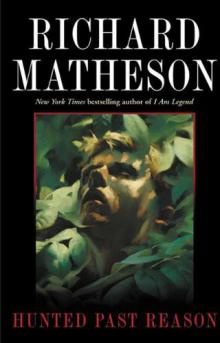 Hunted Past Reason
Hunted Past Reason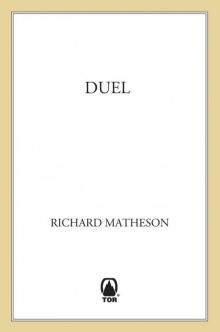 Duel: Terror Stories
Duel: Terror Stories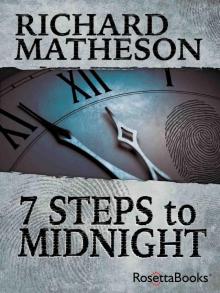 7 Steps to Midnight
7 Steps to Midnight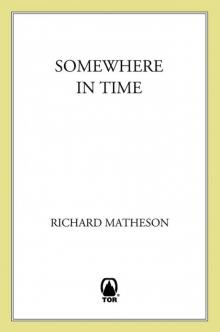 Somewhere in Time
Somewhere in Time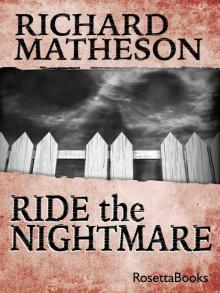 Ride the Nightmare
Ride the Nightmare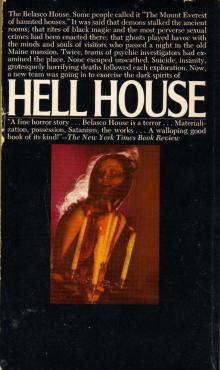 Hell House
Hell House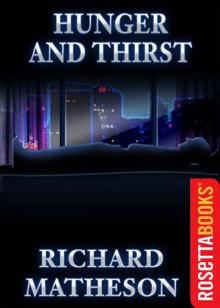 Hunger and Thirst
Hunger and Thirst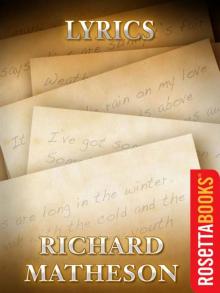 Lyrics
Lyrics Other Kingdoms
Other Kingdoms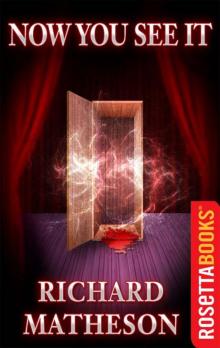 Now You See It . . .
Now You See It . . .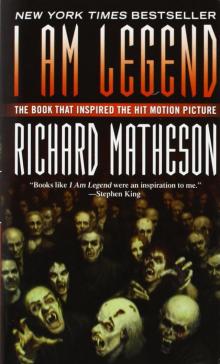 I Am Legend
I Am Legend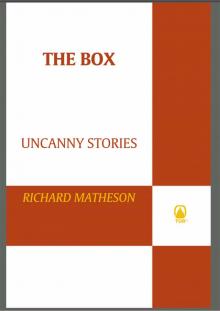 The Box: Uncanny Stories
The Box: Uncanny Stories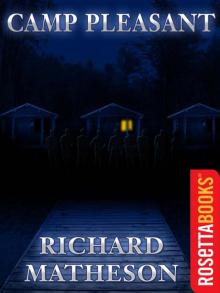 Camp Pleasant
Camp Pleasant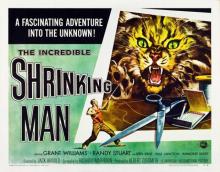 The Incredible Shrinking Man
The Incredible Shrinking Man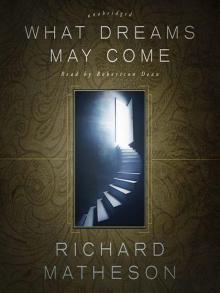 What Dreams May Come
What Dreams May Come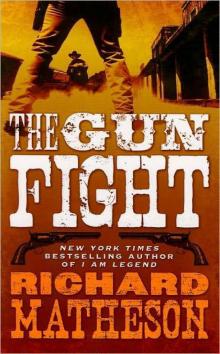 The Gun Fight
The Gun Fight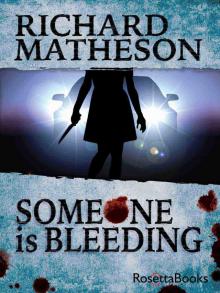 Someone Is Bleeding
Someone Is Bleeding Mediums Rare
Mediums Rare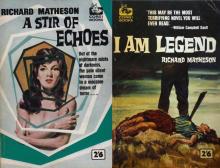 A Stir of Echoes
A Stir of Echoes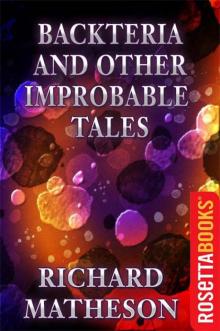 Backteria and Other Improbable Tales
Backteria and Other Improbable Tales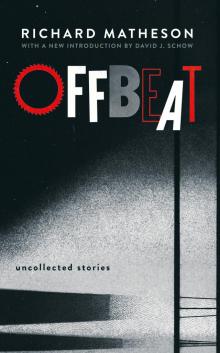 Offbeat: Uncollected Stories
Offbeat: Uncollected Stories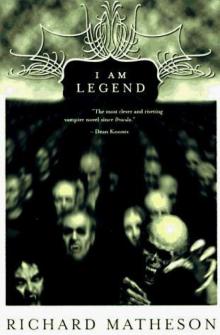 I Am Legend and Other Stories
I Am Legend and Other Stories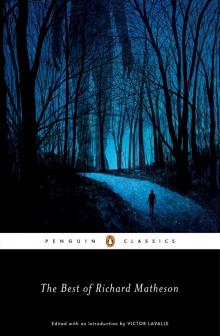 The Best of Richard Matheson
The Best of Richard Matheson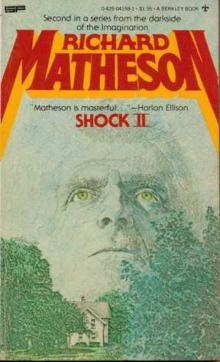 Shock II
Shock II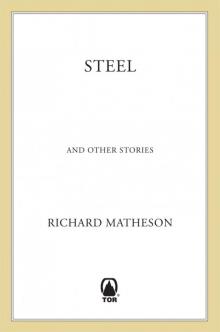 Steel: And Other Stories
Steel: And Other Stories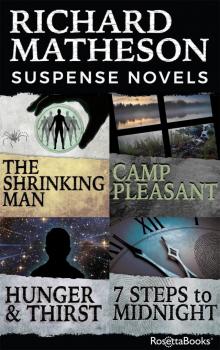 Richard Matheson Suspense Novels
Richard Matheson Suspense Novels The Link
The Link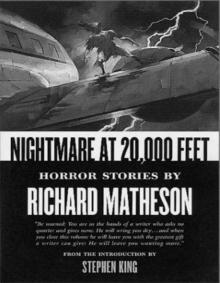 Nightmare At 20,000 Feet
Nightmare At 20,000 Feet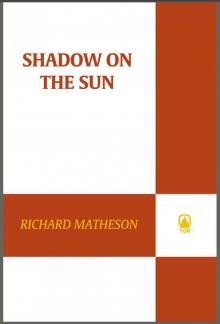 Shadow on the Sun
Shadow on the Sun![Steel and other stories [SSC] Read online](http://i1.bookreadfree.com/i/03/21/steel_and_other_stories_ssc_preview.jpg) Steel and other stories [SSC]
Steel and other stories [SSC] Created By
Created By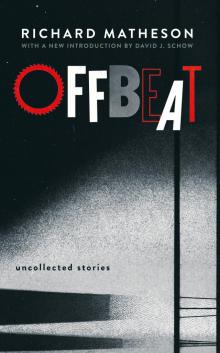 Offbeat
Offbeat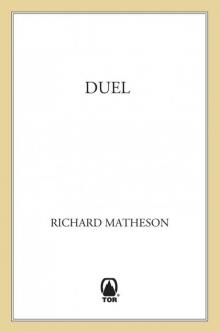 Duel
Duel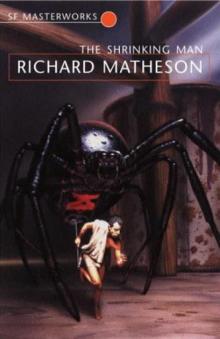 The Shrinking Man
The Shrinking Man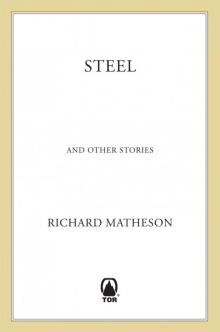 Steel
Steel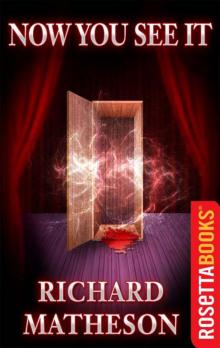 Now You See It
Now You See It